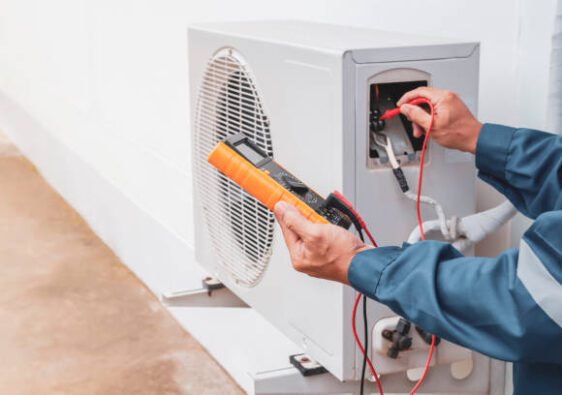Did you know in 2021, approximately 323,465 homes were flipped and sold for a profit? Home renovation for profit can be an exciting business venture, but it’s no easy task.
There is a lot of planning involved, and you must make thoughtful decisions to maximize your profits. Don’t worry, there are some steps you can take to become a master at property investment and even turn it into a business.
Keep reading to learn five intelligent tips to profit big from your home renovation!
1. Do Your Market Research
You’ll need to make sure you do your homework and research your local housing market. You need to research the market for trends, such as the size and type of houses selling the most in your area.
Focus on the areas that have houses with multiple offers and are selling quickly. Also, look to see how many properties have been sold in the area over the last 2 to 3 months. Remember, this also includes how long these houses were on the market before they were sold.
Another way to assess the potential for the location you’re considering is to find out if any significant business developments are taking place in the area. Maybe a large company is opening a branch in that area, or a supermarket chain is expanding.
Finally, consider finding a real estate agent to work with. They can help you understand the current market conditions and what home improvements you’ll need to make a profitable sale.
2. Secure Your Financing
Before you dive too far in, you’ll need to secure your money matters. If possible, it’s best to purchase the house you’ll renovate with cash. This way, you won’t acquire debt or have to pay interest on the house before you can sell it.
If you don’t have cash available, you’ll need to consider other ways to finance the property. Keep in mind that not all mortgage lenders will offer mortgages for house flips. You also might get an early repayment penalty for paying off your mortgage early if you do secure a mortgage.
Other ways you can finance your flip include:
- Cash-out refinance is an option if your primary home has increased in value
- A home equity line of credit (HELOC) loan uses your home’s equity
- A hard money loan is a short-term loan from a private lender
Along with the home purchase, you’ll need to make a budget for the costs of repairs and renovations. Make sure you budget for every possible scenario like labor costs, material costs, and selling costs.
3. Schedule Enough Time
One of the most significant issues people can run into when flipping a house is not realizing the time it can actually take. Trying to cut corners on a property renovation can eat away your profits in the end.
Remember, renovating a property is a time-consuming process. It can take a few months even to find the right property and finalize the sale.
You’ll also have to make time to get the renovations done. If you’re going DIY on renovations and have a day job, you’ll have to schedule blocks of time to finish them.
This translates to many evenings and weekends spent on your fix and flip project. If you don’t schedule enough time, you’ll lose profits by letting the house sit too long on the market.
Remember that even if you hire a professional to do the work, you’ll be spending time supervising the construction and ensuring it’s done to your expectations.
4. Get a Professional Inspection
Just because you’re flipping the home doesn’t mean you can overlook getting an inspection. The cost of getting a professional inspection done is nothing when you consider the potential costs of having to fix structural severe defects.
An inspection is especially important if you’re purchasing a fixer-upper you’re hoping to update and sell quickly. Don’t be afraid to follow the home inspector around and ask questions. You’ll learn invaluable knowledge about the process that you can apply to your future investments.
A general home inspector will look for issues with:
- Plumbing
- Electrical systems
- Roof and attic
- Walls and floors
- Windows
- Foundation
- Basement and crawl spaces
They’ll also check the exterior structure for drainage, water damage, and other safety issues.
Remember, to make a profit, you need to think like an investor and protect yourself and your assets before making any financial commitments.
5. Avoid Making Over-Improvements
When you’re flipping your first house, sometimes it’s challenging to keep your own emotions in check. To make a profit, you must keep your design tastes from taking over.
At the same time, it’s important to have a smart strategy for the updates you do decide to make. If most of the homes in the neighborhood have laminate kitchen countertops, you won’t make a good return on your investment if you install granite countertops and expensive custom cabinets.
You’ll want to avoid the trends and focus on making only necessary home upgrades. Some upgrades to consider include:
- Installing cost-effective kitchen counters and floors
- Updating bathroom fixtures
- Updating the paint and flooring
- Adding shutters
- Upgrading the landscaping by planting flowers
- Installing outdoor lighting
- Replacing old hardware like doorknobs
Also, keep any design elements and colors neutral to make the home appeal to the largest buying audience possible. For more helpful tips, view this site to learn about other ways to make your profits soar.
Home Renovation Tips
Now you know some tips on how to make a profit on your home renovation, you can get to work on finding and renovating the perfect home.
Remember, successful investments don’t happen overnight, so take your time and do your research. You’ll figure out a plan that works for you and your budget.
If you’re ready to learn more home and business tips, check out our blog for more inspiration!



